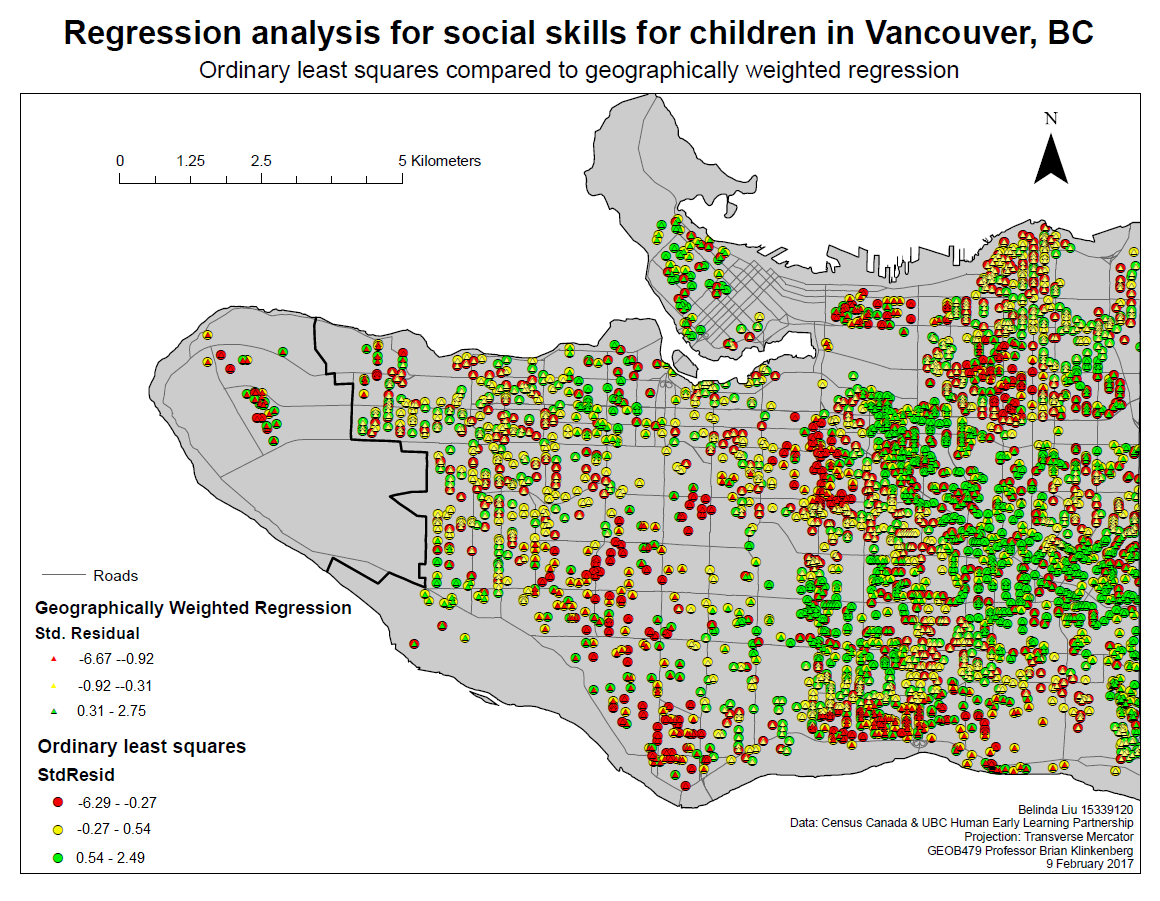10 February 2017
This analysis used a geographically weighted regression model (GWR) and Vancouver-based data to explore the ways by which variables related to a child and the child’s neighbourhood influences the development of their social skills. Data reflecting early childhood development such as a child’s social skills and language abilities were acquired from the Human Early Development Instrument and data reflecting neighbourhood characteristics such as average income in the neighbourhood, and percentage of the neighbourhood families that are lone parent, were acquired from Census Canada.
My biggest take-away from this lab was learning about the GWR. GWR differs from global regression models such as OLS in that it creates a separate regression model for each subject under study. This helps to account for any spatial processes (if any) at work. Below is a map I created to compare OLS results of the study to GWR results. Points where the colours of the triangle and circles match indicate areas where the OLS results agreed with that of the GWR and points where the colours of the triangle and circles do not match indicate areas where the results of the two methods did not agree i.e. areas where there is some kinda of spatial process at work that the OLS did not account for. Based on visual inspection, the highest number of matches occur in the SE edge of Mount Pleasant and at the boundary of Kensington-Cedar Cottage and Renfrew-Collingwood.

Map 1. Ordinary least square results compared to geographically weighted regression results.
